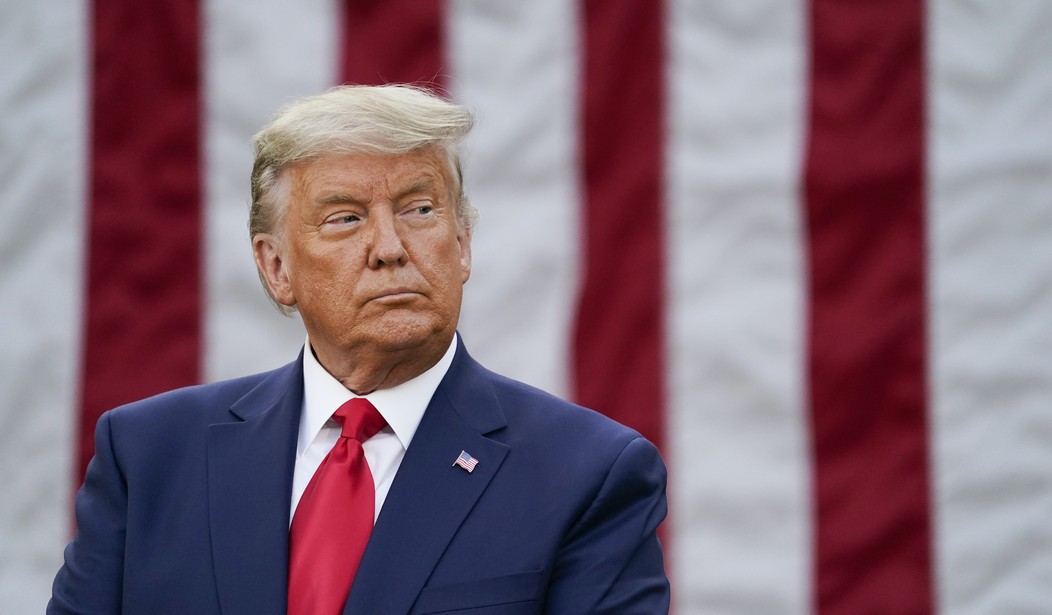It feels like millions of years ago. But, in fact, it was actually the beginning of this calendar year. It was January 2020 when House Democrats decided to pursue an obviously partisan impeachment attack against the President of the United States, Donald Trump.
At the same time, nobody was paying attention to what was brewing on the other side of the globe, where tens of thousands of Chinese natives began to die at the behest of the Coronavirus.
Wrapped up by the intrigue of impeachment, a far more pressing matter went largely unnoticed. Well, to be fair, nobody other than Sen. Tom Cotton, who’s perceptiveness on the issue was – upon reflection – startlingly impressive.
The American people saw past the impeachment charade, and President Trump walked out of the ordeal with some of the highest surging poll numbers of his entire presidency. An ironic twist that must’ve had Nancy Pelosi keeled over at the time.
When the House elected to impeach, and the Senate to acquit, the news-cycle was finally ready to discuss the issue that would change our lives forever. The topic that under a year later feels attached to us for eternity. That being, of course, the coronavirus. And so they did.
Like a whirlwind, the country was surrounded by endless coverage of a virus that we all knew was about to hit home. We waited anxiously, until there was no waiting left to be done, and New York was hit, portraying the early picture of the suffering that would plague the rest of the nation.
President Trump, always one eager for a spectacle, capitalized on the hysteria by introducing the coronavirus task force briefings. Every day, the president, flanked by a group of doctors and experts, came out and apprised the nation of his efforts to mitigate the virus. He, additionally, took questions from an increasingly intensified press corps. With Fauci’s numbers joining his own, the president leveraged these briefings, and continued to surge in popularity.
Recommended
But one day, it all fell apart. The death tolls kept on increasing at rates that could not be justified at the podium. Dysfunction was on display at-large when Governor Andrew Cuomo – with a nation of eyes upon him – put on a rivaling press conference where he disputed the president regularly. The White House briefings turned into shouting matches with the press, and President Trump allowed a gaffe to slip wherein he joked (ineffectively) about injecting bleach into coronavirus patients.
The country had seen enough. In a time where it seemed like everything was on the line, where above all, reassurance and stability was desired to combat the uncertainty of an invisible plague, the coronavirus took its toll on the president’s polling. His numbers began to fall as quickly as they had risen. The gains he made during impeachment quickly vanished. He began to feud with Dr. Fauci whose favorability was going in the opposite direction. And all the while, Joe Biden sat in his basement, promising an America without the hoopla, promising to run the country the way your grandfather would, and giving people hope that one day their lives would return to “normal.”
But even as the country began to understand the coronavirus better, and even after realizing that perhaps it wasn’t the threat we had originally been preparing for, the virus continued (and continues) to take its toll on the most important thing to President Trump’s administration and legacy.
The economy. Long ago, President Clinton reminded us that “it’s the economy, stupid.” Since that political doctrine was spoken, many studies and polls have confirmed that the American people often vote with their wallets. President Trump, at the time of impeachment, seemed to be cruising to re-election on that basis alone. His stock market was breaking records. Minority communities were seeing more income than ever before. The unemployment rate was minimal. And all the while Democrats looked petty and pathetic focusing on the inside-baseball that was a phone call with the Ukrainian president. But when the coronavirus hit, in a matter of weeks, the stock market crashed, businesses were locked up, rioters filled the streets, and the Trump’s planned crescendo of unity through unified success toppled just months before an election.
And from that, the Trump administration could never recover. I’ve written before about how the team Trump employed at the beginning of the pandemic was perhaps the best of his entire presidency. But no press strategy was equipped to handle the challenges presented by the virus, especially when faced with a media rooting for the administration’s failure.
The Trump campaign began to falter and the poll numbers opposite Joe Biden continued to worsen. President Trump outperformed the polls, certainly, but he also underperformed from the vantage of the incumbency. He could never recover from the coronavirus pandemic, perhaps the silver lining for China to whom he was tough on foreign policy. As a result, it appears he will lose his spot in the oval office if litigation fails.
Prior to the election, coronavirus had killed around 200,000 Americans; after the election, the Trump presidency was perhaps Coronavirus’ final fatality.
Elliot Fuchs is a political commentator, consultant, and writer. He is also a student at the Georgetown University Law Center. You can follow him on twitter @Elliot_Fuchs.

























Join the conversation as a VIP Member